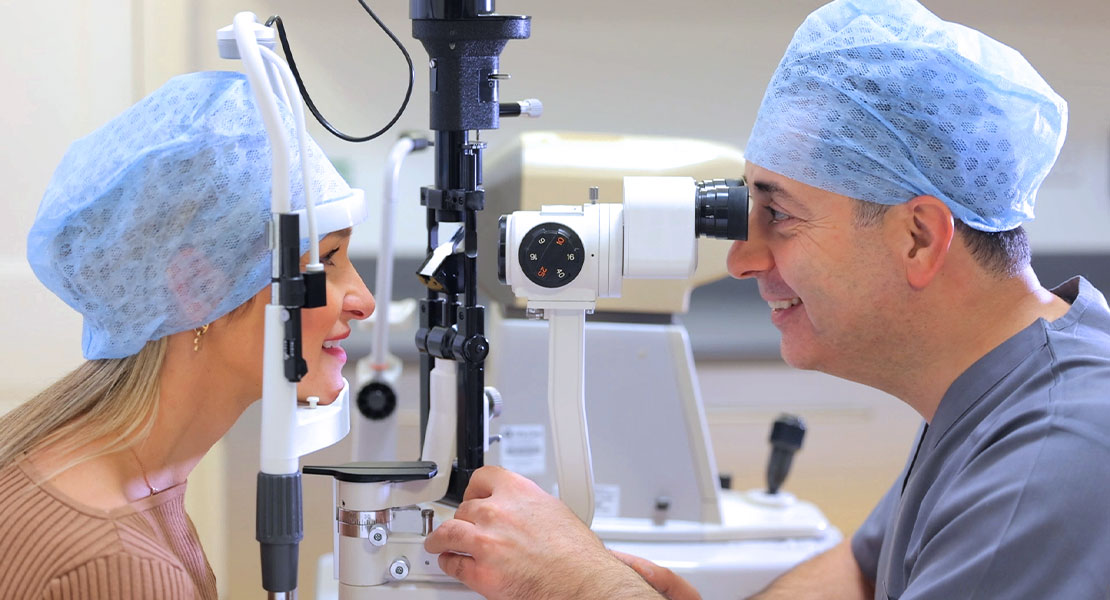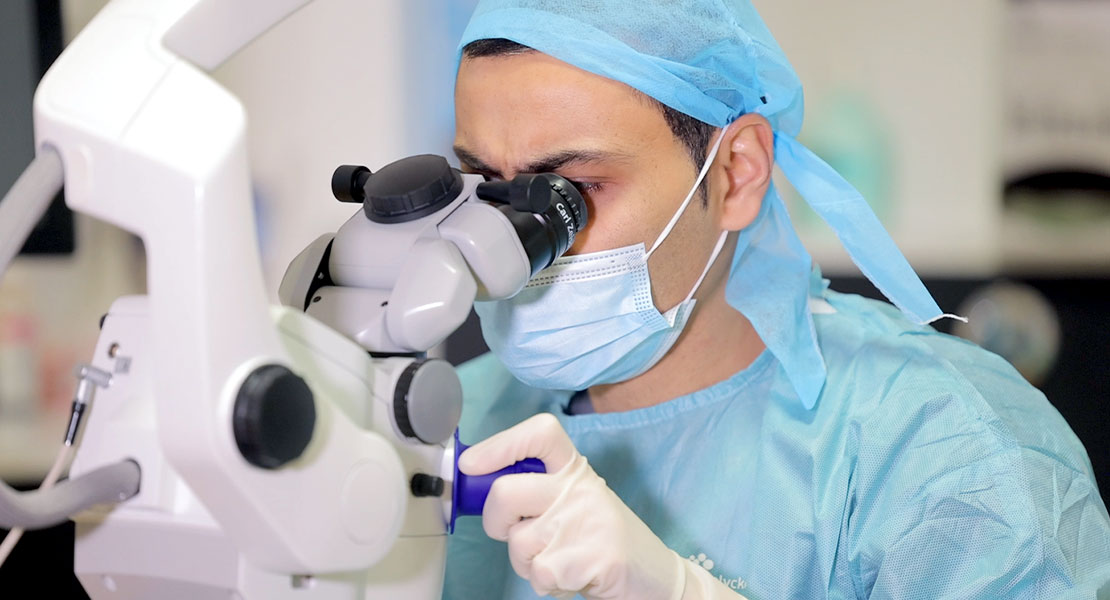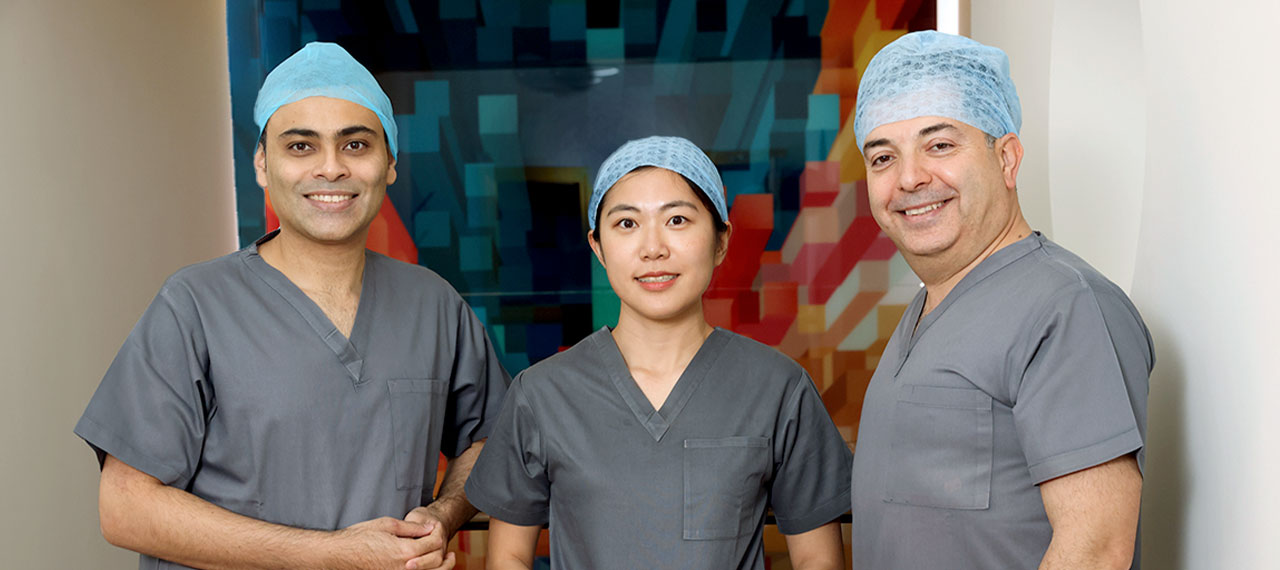Cataract surgery is one of the most common and successful surgical procedures performed worldwide, restoring clear vision to millions of people each year. However, the outcome of your surgery largely depends on the skill, experience, and approach of your chosen surgeon. If you're considering cataract surgery, it's essential to select a specialist who meets high professional standards and provides the best care possible.
Understanding Cataract Surgery
A cataract is a clouding of the eye’s natural lens, leading to blurred or impaired vision. Cataracts develop slowly and can eventually interfere with daily activities such as reading, driving, and recognising faces. If left untreated, they can significantly impact quality of life, causing glare, double vision, or difficulty seeing in dim lighting conditions.
Cataract surgery involves removing the cloudy lens and replacing it with a clear artificial intraocular lens (IOL). The procedure is typically quick, painless, and highly effective, with a high success rate. However, choosing the right surgeon is crucial to achieving the best possible outcome.
When Should You Consider Cataract Surgery?
Cataracts develop gradually over time, and symptoms may initially be mild. Many people adjust to early vision changes by using stronger glasses or increasing lighting when reading. However, as cataracts progress, they can begin to interfere with daily activities. Here are some signs that may indicate you need cataract surgery:
- Blurry or Clouded Vision – If you notice your vision has become persistently cloudy or foggy, cataracts may be the cause.
- Difficulty Driving at Night – Increased glare from headlights or difficulty seeing road signs at night could be a sign that cataracts are worsening.
- Frequent Prescription Changes – If you find yourself needing frequent changes to your eyeglasses or contact lenses, it could indicate the progression of cataracts.
- Diminished Colour Perception – Colours may appear faded, less vibrant, or have a yellowish tint.
- Double Vision in One Eye – Cataracts can cause double vision in a single eye, which isn't correctable with glasses.
- Difficulty with Daily Activities – If tasks such as reading, watching television, or recognising faces become challenging, it may be time to consider surgery.
Early detection and timely intervention can prevent unnecessary vision impairment. Booking an eye exam with a specialist is the best way to determine whether cataract surgery is the right option for you.
Types of Cataract Surgery and Intraocular Lenses
- Phacoemulsification Surgery
This is the most common cataract surgery technique, where an ultrasound device breaks up the cloudy lens before removal. A new intraocular lens (IOL) is then inserted to restore vision. The entire procedure is typically completed within 30 minutes.
- Laser-Assisted Cataract Surgery
This method uses femtosecond laser technology to make incisions and soften the cataract for removal. It can be beneficial for complex cases and patients with astigmatism.
- Extracapsular Cataract Extraction (ECCE)
ECCE is an older technique used when cataracts are too dense for phacoemulsification. The surgeon removes the cataract in one piece through a larger incision.
- Intraocular Lens (IOL) Options
Patients have various choices for intraocular lenses, including:
- Monofocal Lenses – Provide clear vision at a single distance (near or far).
- Multifocal Lenses – Offer vision at multiple distances, reducing dependence on glasses.
- Toric Lenses – Correct astigmatism, improving overall clarity.

Key Factors to Consider When Choosing a Cataract Surgeon
- Qualifications and Accreditation
Your surgeon must be registered with the General Medical Council (GMC) and should have completed specialist ophthalmic training. It’s advisable to choose a surgeon who is a fellow of the Royal College of Ophthalmologists (RCOphth) or a member of recognised professional bodies such as the European Society of Cataract and Refractive Surgeons (ESCRS). Additionally, it is recommended to choose a surgeon with a CertLRS – Certificate in Laser and Refractive Surgery from the RCOphth, as this demonstrates specialised expertise in laser eye surgery.
- Experience and Specialisation
When choosing a cataract surgeon, experience is one of the most critical factors in ensuring a successful outcome. Cataract surgery requires extensive hands-on training, technical skill, and clinical expertise. A highly experienced consultant ophthalmic surgeon will have performed thousands of procedures and developed techniques to handle both standard and complex cases.
- Technology and Techniques Used
The use of modern advancements, such as premium intraocular lenses (IOLs), can significantly enhance surgical outcomes by improving precision, reducing recovery time, and offering better visual clarity. Before proceeding, ask your surgeon:
- What types of intraocular lenses do you offer, and which would best suit my lifestyle and vision needs?
- Are there additional costs associated with premium lenses?
- What are the benefits and potential risks of these advanced technologies in my case?
A reputable surgeon will explain the available options and help determine the best approach based on your needs.
- Patient Reviews and Reputation
Look for testimonials from past patients on Google Reviews, Doctify, and Trustpilot to gain insight into the surgeon’s quality of care.
- Postoperative Care and Follow-Up
A dedicated cataract surgeon plays a critical role in ensuring a smooth recovery by:
- Providing clear, detailed post-operative instructions to help patients care for their eyes properly.
- Monitoring the healing process through scheduled follow-ups to detect any potential complications early.
- Being readily available to address patient concerns and answer questions during the recovery period.
- Adjusting post-operative treatment as needed, including modifying medication or recommending further care if necessary.
Key postoperative instructions typically include:
- Using prescribed eye drops to prevent infection and inflammation.
- Avoiding strenuous activities and heavy lifting for at least two weeks.
- Wearing sunglasses to protect against bright light.
- Attending follow-up appointments to monitor healing.
A responsible cataract surgeon doesn't simply perform the procedure but remains actively involved in the patient's recovery journey. Ensuring accessibility and responsiveness to patient concerns is a hallmark of high-quality post-operative care.

Leading Cataract Surgeons at London Cataract Centre
Two of the most highly regarded cataract surgeons are Mr Tariq Ayoub and Mr Samer Hamada. Both are esteemed specialists with extensive experience in cataract and refractive surgery. They are also the founders of London Cataract Centre, a renowned clinic conveniently located in central London, offering world-class eye care and cutting-edge surgical treatments.
- Mr Tariq Ayoub
Mr Tariq Ayoub is a consultant ophthalmic surgeon with a strong reputation for excellence in cataract and refractive surgery. He has performed thousands of successful cataract procedures, simple and complex, and is known for his precision, patient care, and use of cutting-edge lens technologies and surgical techniques. His approach focuses on achieving the best possible visual outcomes tailored to each patient’s specific needs.
- Mr Samer Hamada
Mr Samer Hamada is a leading consultant ophthalmic surgeon specialising in cataract and anterior segment surgeries. He has a wealth of experience in treating complex cataract cases. His expertise extends to advanced lens implant technology, ensuring that patients achieve optimal vision outcomes.
Final Thoughts
Choosing the right cataract surgeon is a crucial decision that can have a lasting impact on your vision. By considering factors such as qualifications, experience, patient feedback, and the technology used, you can make an informed choice. If you're looking for top-tier care, Mr Tariq Ayoub and Mr Samer Hamada at London Cataract Centre provide expert cataract surgery with outstanding patient outcomes.
Your eyesight is invaluable—take the time to choose the best surgeon for your cataract procedure and enjoy a clearer, brighter future.


